“Be a Literary Agent” article on AWP website by John Coyne (Ethiopia)
CAREER ADVICE
Be a Literary Agent
John Coyne profiles six literary agents and offers suggestions for
that career path for the Association of Writers & Writers Programs Website.
April 2016
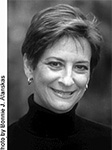 I called a novelist friend (Mary-Ann Tirone Smith Cameroon 1965-67) and asked her if she knew of any MFA graduates who were employed as literary agents and she replied, “MFA graduates are writers, not agents.”
I called a novelist friend (Mary-Ann Tirone Smith Cameroon 1965-67) and asked her if she knew of any MFA graduates who were employed as literary agents and she replied, “MFA graduates are writers, not agents.”
She was categorically right, but she wasn’t totally correct. Just as there are book and magazine editors who also write fiction, nonfiction, or poems, there are also literary agents with BAs in English and/or MFAs in writing. Some later change horses and become agents, putting their own literary knowledge into play when advising their clients. Others continue to write but work as agents for the sake of having a steadier income while finishing their next novel or waiting for the last one to be made into a film. Here, a half dozen literary agents share their stories.
Agents Come from Many Backgrounds
A career as a literary agent gives an MFA graduate or English major the opportunity to stay close to what he or she loves most in the world: books. But agents are more than just observers or negotiators. They are on the front line finding the writers that publishers will want to publish.
Anna Stein
As Anna Stein, an agent with ICM Partners, puts it, “The pleasure of discovery—there’s nothing like it. Bringing that discovery into the world, introducing new work to publishers. It is intoxicating!”
Stein began working as an agent straight out of college. It was her summer internship before going to graduate school and earning an MPhil in Textual and Visual Studies at the University of Paris and Trinity College in Dublin. When she received her degree, she went to work for a nonprofit for victim assistance, where she became interested in immigration/migrant policy, and from there earned an MA in International Relations from the Johns Hopkins School of Advanced International Studies. But then September 11th happened and interfered with the creation of any meaningful immigration policy. Plus she realized she was writing comparative literature papers for her political science classes, so she decided it made good sense to jump over to publishing.
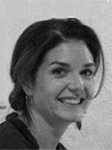 This was not a totally new career direction for Stein as her graduate studies in Ireland were basically comparative literature with images. She wrote on Emile Zola and Mary Cassatt for her master’s degree. While she was a student she wrote readers’ reports on French novels that her brother, a book editor, was considering for publication.
This was not a totally new career direction for Stein as her graduate studies in Ireland were basically comparative literature with images. She wrote on Emile Zola and Mary Cassatt for her master’s degree. While she was a student she wrote readers’ reports on French novels that her brother, a book editor, was considering for publication.
When she returned to New York with two MA degrees, she started at the bottom of the ladder, answering phones at the Wylie Agency. Within a few months, however, she joined Donadio & Olson Agency. “With their support and mentoring,” she says, “I sold my first book within a year.”
She has been an agent for 12 years and has been representing such writers as Maria Semple, Andrew Cockburn, Helen Epstein, Ben Lerner, and Hanya Yanagihara.
Julie Barer
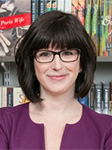 Julie Barer, a literary agent with The Book Group, began her postcollege publishing career as a bookseller at Shakespeare & Company, a New York City bookstore. When she got her first job at an agency, she knew it was the right spot for her. “I loved that I now had the privilege of working directly with authors on every aspect of their work, from the editing process of shaping and defining a story or a manuscript to pitching, selling and negotiating with a publisher, to thinking beyond one book to the next project and the whole arc of a writer’s career.”
Julie Barer, a literary agent with The Book Group, began her postcollege publishing career as a bookseller at Shakespeare & Company, a New York City bookstore. When she got her first job at an agency, she knew it was the right spot for her. “I loved that I now had the privilege of working directly with authors on every aspect of their work, from the editing process of shaping and defining a story or a manuscript to pitching, selling and negotiating with a publisher, to thinking beyond one book to the next project and the whole arc of a writer’s career.”
“I also loved being able to help discover new talent and nurture that talent. Being one of the people who help introduce new writers and their work to the world is a deeply fulfilling experience.”
Barer’s clients at The Book Group are probably also feeling pretty fulfilled, since they have won numerous prizes, including the PEN/Hemingway Award, the Dylan Thomas Prize, the Rome Prize, the Los Angeles Times First Book Award, as well as grants from the Fulbright Fellowship, the National Endowment of the Arts, and the Guggenheim Foundation.
Jennifer Johnson-Blalock
Almost every agent will tell you they chose this job because they love books. “Reading has been my favorite thing since I was a little kid hiding in the closet with a book and a flashlight,” says Jennifer Johnson-Blalock of Liza Dawson Associates.
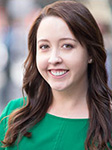 Jennifer Johnson-Blalock graduated with honors from the University of Texas at Austin with a BA in English. After college, she wanted to go directly into the publishing world, but was unable to secure a book publishing internship. “I was nervous about moving to New York with no connections,” she says today. She had, however, read an article that said going to law school was a great idea if one wanted to be a literary agent. It seemed like a sensible plan. She took the LSAT, and things snowballed from there. “It was a complete overkill on my side,” she says, “I thought it would be helpful for better understanding contracts, but I found out it was not necessary.”
Jennifer Johnson-Blalock graduated with honors from the University of Texas at Austin with a BA in English. After college, she wanted to go directly into the publishing world, but was unable to secure a book publishing internship. “I was nervous about moving to New York with no connections,” she says today. She had, however, read an article that said going to law school was a great idea if one wanted to be a literary agent. It seemed like a sensible plan. She took the LSAT, and things snowballed from there. “It was a complete overkill on my side,” she says, “I thought it would be helpful for better understanding contracts, but I found out it was not necessary.”
Johnson-Blalock knew by the beginning of her second year at Harvard Law School that she really did not want to be a lawyer, but wasn’t quite sure how to extricate herself. So, she decided to focus on entertainment law, thinking that it could transition to a New York boutique firm after a few years in Los Angeles, where it’s easier to get early experience.
Graduating in 2009 with her JD degree in the midst of the recession, the entertainment department at the firm where she’d accepted an offer dissolved right before she started to work.
“So the firm put me in the patent litigation department, which was so far from what I wanted to do that I left after just a few months.”
Moving back to Austin, Johnson-Blalock found work on a contract basis for a solo entertainment attorney, but after a year she wanted something more substantive to do, and having several friends who were happily teaching, she decided to return to the University of Texas for her certification, then next moved to Houston to teach at an independent school.
“It was a wonderful experience in many ways,” says Johnson-Blalock, “but by then I was 29, and I realized that I still wanted to live in New York and work in publishing, so it was time to move to the Big Apple and give it a shot.”
Now, after two and a half years, she is absolutely certain that this was the right location and career for her. “Part of me is frustrated that I, in a sense, wasted time, but I think that I gained some valuable experience and self-knowledge along the way. I love helping to bring more books into the world. I also think it’s a great fit for my personality and skills—I’m very business minded, but I like working with more creative types.”
Among her clients are writers Rebecca Barrow, Kristin Rockaway, and Robyn Lucas.
Linda Camacho
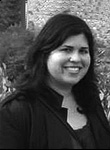 Linda Camacho joined Prospect Agency in 2015 after nearly a decade working at Penguin and Random House in the production and marketing departments. She loved her work, but wanted to do something more creative and less corporate. Previously she had had an internship at Writers House which inspired her, as she never really knew what an agent did until she had a chance to see it for herself. At Random House, she had the opportunity to learn what steps she needed to take to make the transition.
Linda Camacho joined Prospect Agency in 2015 after nearly a decade working at Penguin and Random House in the production and marketing departments. She loved her work, but wanted to do something more creative and less corporate. Previously she had had an internship at Writers House which inspired her, as she never really knew what an agent did until she had a chance to see it for herself. At Random House, she had the opportunity to learn what steps she needed to take to make the transition.
Next, Camacho met Emily Sylvan Kim, a former Writers House agent who founded Prospect Agency. Kim invited Linda Camacho to join her team. The agency represents, among others, Kristen Ashley, New York Times–bestselling author (romance), Claudia Connor, New York Times– and USA Today–bestselling author (romance) and Tim Tharp, National Book Award Finalist (young adult). Linda has a new author, Mary Lambert, who recently sold her project to Scholastic, which will be published in the spring of 2017.
It was while Camacho was working at Random House that she also earned her MFA. “While I always prided myself on my ability to spot talent,” she says now, “I couldn’t always necessarily articulate why something did work or didn’t work in a manuscript. The MFA program gave me the language and really sharpened my critiquing skills. Also, having been on the receiving end of workshop and instructor feedback, I’m much more sympathetic to what writers deal with on that end. Writing’s tough!”
Today, she says, she is still writing, but adds, “I prefer to read than write. I’ve been easing my way back into it, though, and am finishing up a young adult contemporary story I worked on in my MFA program.”
Peter McGuigan
Peter McGuigan, of Foundry Media, is another writer who has found his way into the world of agents. He said he started in the business, not in the mailroom, but as a “bike messenger.” It took him five years, until 1999, to become a “full-fledged” agent. He became one, he said, “because I like living by my wits. I enjoy working with writers. I understand them. Also, I prefer to participate in pop culture rather than just consume it.”
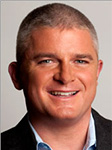 McGuigan studied creative writing, journalism, and literature at Virginia Tech and Virginia Commonwealth University. Going to work in publishing, he took a job at Sanford J. Greenburger Associates where he worked with such bestselling agency clients as Dan Brown and Nicholas Sparks while he developed his own diverse list. In 2007, he and a business partner launched Foundry Literary + Media, where he says he works closely with authors “to develop innovative, rock-solid proposals and manuscripts.” His clients have enjoyed great success. Vicki Myron and Bret Witter’s Dewey: The Small-Town Library Cat Who Touched the World was an international bestseller and rose to number one on the New York Times list. Patrick deWitt’s novel, The Sisters Brothers, was shortlisted for the Man Booker Prize.
McGuigan studied creative writing, journalism, and literature at Virginia Tech and Virginia Commonwealth University. Going to work in publishing, he took a job at Sanford J. Greenburger Associates where he worked with such bestselling agency clients as Dan Brown and Nicholas Sparks while he developed his own diverse list. In 2007, he and a business partner launched Foundry Literary + Media, where he says he works closely with authors “to develop innovative, rock-solid proposals and manuscripts.” His clients have enjoyed great success. Vicki Myron and Bret Witter’s Dewey: The Small-Town Library Cat Who Touched the World was an international bestseller and rose to number one on the New York Times list. Patrick deWitt’s novel, The Sisters Brothers, was shortlisted for the Man Booker Prize.
To succeed in this business, says Peter, “requires thick skin, good phone skills, and a lot of energy.” Also, he adds, “To be a successful agent today, a person needs one important skill: an instinct for what’s big, because publishers want books with platforms and big audiences, and you have to find books that sell. These books buy you the time and energy to do the harder-to-sell projects.”
Jenni Ferrari-Adler
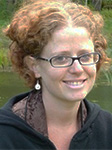 Jenni Ferrari-Adler, an agent at Union Literary, graduated from Oberlin College with a BA in creative writing. After college becoming an agent was far from her first job. She worked in a café, bakery, farmers market, bookstore, as a reader for the Paris Review, and taught preschool all the while writing and publishing short stories. She was working in a temporary tattoo parlor when a concerned friend told her about an opening at the literary agency, Sobel Weber Associates.
Jenni Ferrari-Adler, an agent at Union Literary, graduated from Oberlin College with a BA in creative writing. After college becoming an agent was far from her first job. She worked in a café, bakery, farmers market, bookstore, as a reader for the Paris Review, and taught preschool all the while writing and publishing short stories. She was working in a temporary tattoo parlor when a concerned friend told her about an opening at the literary agency, Sobel Weber Associates.
She applied for and got the position. Four year later she left Sobel Weber to get an MFA in Fiction at the University of Michigan. After that she moved back to New York City, where she is from, and put in another couple of years working odd jobs and writing and rewriting her novel. At a certain point she stuck that novel in the proverbial drawer (where it remains) and got a job at Sally Wofford-Girand’s agency Brick House (which recently merged with Keating Literary to become Union Literary), building up her own client list. She has been an agent there for eight years. She is not writing but holds out the possibility that she may again at some point.
Today she represents many writers—some of whom she met when they were all MFA students at Michigan. She has also edited and published the anthology Alone in the Kitchen with an Eggplant: Confessions of Cooking for One and Dining Alone and has taught fiction at the University of Michigan and the Gotham Writers Workshop.
As a literary agent, she represents award-winning food writers including Maria Speck and Nancy Singleton Hachisu and fiction writers including Rebecca Dinerstein and Eileen Pollack.
According to Ferrari-Adler, MFA graduates have an advantage as literary agents: Because they have spent a tremendous amount of time in class reading, responding to and judging their fellow students’ writing, they know how to identify and articulate what is working and what isn’t. Jenni also has tremendous empathy for how hard writing and the writing life can be.
What Do Agents Actually Do?
What attracts many graduates to the role of agent is the complexity of the work and the number of skills required to be successful. “You need so many different skills that it’s almost impossible for anyone to excel in all areas,” remarks Jennifer Johnson-Blalock.
Jennifer lists these basic skills in particular:
- A strong editorial eye to pick out the right manuscript and help polish it
- The ability to build relationships with both writers and editors
- The ability (and willingness) to serve, at times, as a stand-in therapist for your clients
- The marketing skill to sell the book to a publisher
- The writing ability to craft a winning pitch letter
Once the book has been published, she adds, additional skills are required. “Keeping track of what money your author is owed and being able to give solid advice on marketing the book and creating publicity for it helps in an increasingly competitive market. And you need to help your clients shape long-term careers. That said, what the literary agent needs most of all is an understanding and vision about the world of publishing. So yes, it’s not a very simple job!”
What is also important, and what often goes unsaid, is that an agent must have the ability to juggle all these jobs at the same time. “On any given day,” says Julie Barer, “an agent may have one book about to go out on submission to a publisher, another in need of blurbs from other writers, and meantime she is preparing for the publication of a client’s book that is coming out in the next few months by helping the publicity department get attention for the author and their book by looking at the marketing plans, using contacts and relationships, reaching out to booksellers to make sure they know about the book, assisting with jacket copy and description, and helping the author with their social media platforms. This is not a career for someone who wants a nine-to-five orderly business life.”
An Agent’s World
Book editors work for publishers, often within the comfortable structure of a corporate environment; they are paid salaries and benefits. Agents, however, work mostly on commission, either at a big agency where they may receive a monthly draw calculated against last year’s earnings, or at a small agency or sole proprietorship where their take home pay is based on a percentage of that month’s cash flow, meaning income is a lot less predictable and only as secure as output is steady. Whether at a big agency or small, the agent only makes money when his or her clients make money—a powerful incentive. “It is the kind of career,” says Julie Barer, “that’s a good fit for someone who is highly self-motivated and doesn’t mind chasing after projects and coming up with ideas on their own. Being a self-starter is key.”
Finding an Agent’s Job
MFA graduates as well as English majors and anyone else looking for work in publishing as an agent need to begin their search for a job by subscribing to publishermarketplace.com and by following listings on Publishers Lunch Job Board.
Future agents also need to be proactive and research agencies online and then send letters with resumes to those that look appealing. If possible, do informational interviews and seek internships or just offer to be a reader at an agency to help you get your foot in the door.
Next, they need to network and find internships or part-time employment in publishing.
It is also wise to familiarize yourself with the kinds of books that are selling and being published (and making the bestseller list or winning prizes.) Staying current and reading a lot is key.
There are a few publishing courses that may offer a way into the field, like this one at New York University:http://www.scps.nyu.edu/academics/departments/publishing/academic-offerings/summer-publishing-institute.html.
Or this one at Columbia University:http://www.journalism.columbia.edu/publishing.
Finding an Agency — William Clark
Here’s how one person found his way into a literary career and now has his own agency.
William Clark of William Clark Associates began his job search while a student at College of William & Mary. In his three years of editing the college review, he came into contact with a number of New York-based writers, including a professor who had recently published a biography with a Random House imprint. A year after leaving William & Mary, having worked as a display ad designer for the convenience store staple publications Auto Trader and Truck Trader, he heard that his former professor’s agent needed an assistant. Recalls Clark: “Though I was intending to move to New York in any case, I thought it would be better to move there with a job in place, and interviewed with the agent and landed the job.”
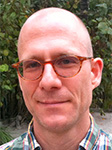 It was when he was working as an assistant that he found he not only liked the work, but that he had the necessary skills. “I discovered early on that I enjoyed working with and championing the work of authors. I also had a head for the nitty-gritty of contracts. Ours is an administrative, collaborative, and social business, and the best agent will constantly evaluate what that means in the context of the rights business. Furthermore, I liked the vantage point of agenting as opposed to publishing—the ability to see the business as a whole, and not just a list.”
It was when he was working as an assistant that he found he not only liked the work, but that he had the necessary skills. “I discovered early on that I enjoyed working with and championing the work of authors. I also had a head for the nitty-gritty of contracts. Ours is an administrative, collaborative, and social business, and the best agent will constantly evaluate what that means in the context of the rights business. Furthermore, I liked the vantage point of agenting as opposed to publishing—the ability to see the business as a whole, and not just a list.”
What Clark learned was that the key to being a successful agent was to always put the author’s interests ahead of one’s own. This seems obvious on first consideration, but realizing that the agent’s primary trading partner is the publisher and not the author, there is frequently a kind of fealty to the publisher by the agent, which does not always serve the author’s best interest, and the agent must be aware of such bias creeping into dealings.
In addition to that, an agent today, says Clark, “must have an understanding of business administration and the value of relationships; he or she must have taste, tenacity and confidence, and a willingness to stay on top of what it means to advocate in the most effective way for the client.
“If you’re not thinking about how your role as agent has changed in this time of enormous technological revolution when everyone’s place in the value chain is being questioned, you’re likely not bringing value to the situation. As Michael Bhaskar, the head of digital for Profile Books, might say, publishers are in the business of creating frameworks for content and amplifying that content. Agents are in the business of establishing the value of the author’s content, extending that value, and protecting that value, and amplifying the author’s oeuvre as a whole.”
Clark is credited with being the first agent to accept queries via email, and for adapting new technologies in the ever-changing marketplace. As Clark says, “While the basic mechanism of introducing seller to buyer hasn’t changed since A.P. Watt, the business of developing, marketing, and selling books has.”
The agency has a website describing its services and query process, which requires the use of the form on the site. The agency blog shares occasional agency news, and the Twitter feeds stories and quotes of interest to Clark, in the hopes that prospective clients will get a sense of what captures his attention, and make a better match. According to Clark, “The publisher must connect directly with readers, which it hasn’t done before, and the author has an opportunity to do the same, which authors have done before in various ways, but without the wonderful means to do so that are available now.”
Today, William Clark represents literary and dramatic rights on behalf of authors ranging from nonfiction writers such as Peter Hessler, Zack O’Malley Greenburg, and Dzogchen Ponlop, to interior designers, chefs, and artists.
Where are Literary Agents located?
New York City, the center of the book and magazine publishing world, has the majority of agents, though Los Angeles, because of the film and television business, is another key city, the truth is, because of the Internet, agents can be found almost anywhere in the United States from the west coast, cities like San Diego, California and Portland, Oregon, to Nashville, Tennessee, and towns as tiny as York, Pennsylvania and Chatham, New York.
Wonderful Work
English majors, writers, and MFA graduates can take their love of books and their skills as editors and literary critics and fashion for themselves independent careers as literary agents. They are doing what they love to do best, read books. And they are getting paid for it!
•
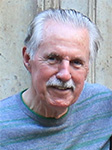 John Coyne is the author of 25 books of fiction and nonfiction, including a bestseller, The Legacy, which was also a successful film starring Sam Elliott. His short stories have been included in several “best of” anthologies. His most recent book is Long Ago and Far Away, a love story set in Africa, Europe, and the United States that spans 40 years. A former college professor and college dean, he has also coauthored three books on alternatives to traditional college education.
John Coyne is the author of 25 books of fiction and nonfiction, including a bestseller, The Legacy, which was also a successful film starring Sam Elliott. His short stories have been included in several “best of” anthologies. His most recent book is Long Ago and Far Away, a love story set in Africa, Europe, and the United States that spans 40 years. A former college professor and college dean, he has also coauthored three books on alternatives to traditional college education.
No comments yet.
Add your comment